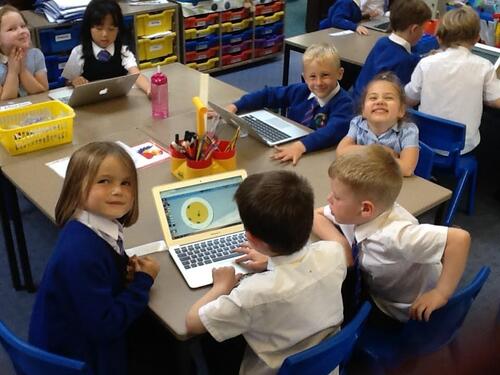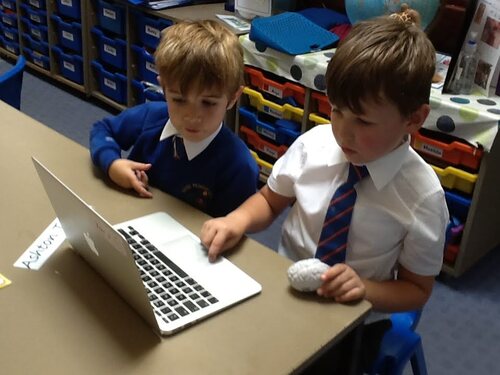|
There is no more important issue facing education, or humanity at large, than the fast approaching revolution in Artificial Intelligence or AI.”
|


| As we move towards this 4th revolution in education, understanding and moulding the world of Computing has never been more important. At Huish, we share the view of Dr Bill Mitchell (Director of Education at the British Computer Society) that the reasons for teaching computing are the same as those for teaching anything. There are many definitions, descriptions and depictions of how we choose what to teach our learners. We teach them the knowledge and skills that we believe will enable them to make sense of and contribute to their world. “We need technology in every classroom and in every student and teacher’s hand, because it is the pen and paper of our time, and it is the lens through which we experience much of our world.” - David Warlick Computers are part of everyday life – technology is essential to our lives, at home and at work. ‘Computational thinking’ is a skill children must be taught if they are to be ready for the workplace and able to participate effectively in this digital world. This links directly with one of our school over-arching pillars or aims which focusses on Digital Literacy. At Huish, we want our learners to use computational thinking and creativity to understand and change the world. We want to empower them to be active participants in our digital world. We will equip them to be digital citizens, digital creators, digital communicators and digital investigators. We aim to grow problem solvers, careful sequence checkers, creative thinkers and logical predictors. We must provide an equality of opportunity across both gender and background; computational thinking is not the province of any one type of person – it is fundamental to the shared experience of us all. All Huish children will be guided on how to become global citizens in a safe and responsible way. They will need to be able to thrive in an ever-changing landscape, particularly when we consider that our pupils will graduate in the mid 2030’s and their careers will last through to 2060 and beyond. As Bill Gates once said, “The computer was born to solve problems that did not exist before”. This process will surely never stop! |
|
Our computing curriculum is composed of four core strands taught across all year groups; Programming, Multimedia, Technology in Our Lives and Handling Data. Through these units, pupils are immersed in a digital environment that teaches them key skills and gives learners the confidence to grow and innovate. Embedded throughout each year group are also core e-safety units that support our learners in being safe and responsible online. Here are the four digital aims of our curriculum that we aim for all learners to reach: Digital Investigator – who can develop ideas We want to develop learners who like to question how and why something works as it does. As children progress through the units of study, they become increasingly confident with the tools on offer allowing them to investigate and develop their ideas further. Digital Citizen – who is safe and responsible In a post-pandemic world, the use of technology has only further increased and therefore it is paramount that are pupils are taught how to be safe and responsible online. Whilst we recognise that we can’t police what our pupils’ access at home, we can provide them with the understanding and confidence to report something they are unsure about and support them in identifying situations that could cause harm. Digital Communicator – who is digitally literate How we communicate with each other is constantly evolving and within a digital world we need to ensure our learners can use a variety of tools in order to be successful both within education and adult life. Digital Creator – who is logical and creative We use a wide variety of applications that provide pupils with opportunities to be creative thinkers and design meaningful digital content that enhances their learning. Through our multimedia units pupils can apply their understanding in a number of subjects and create digital projects that showcase their computing skills. |